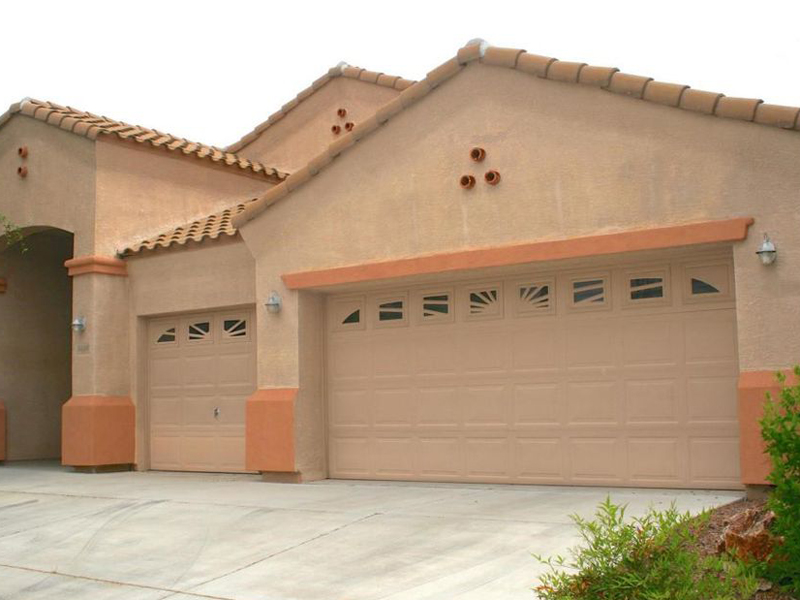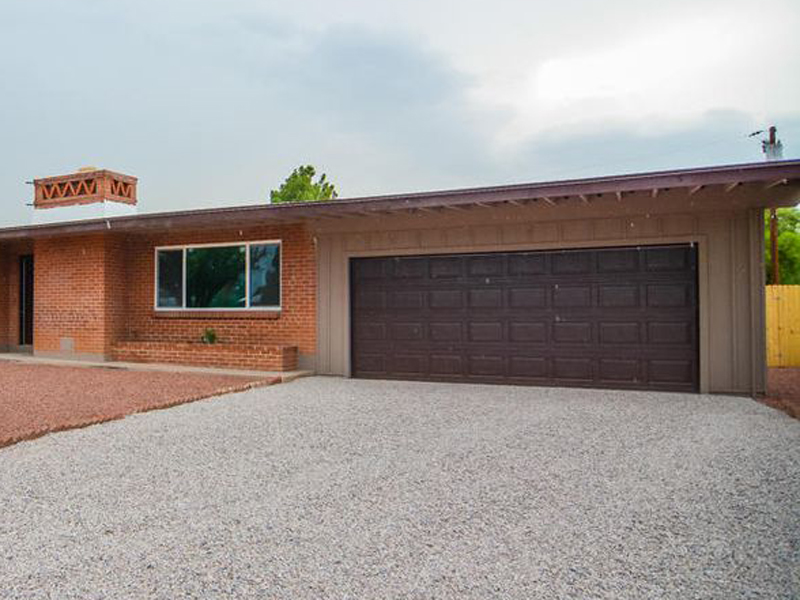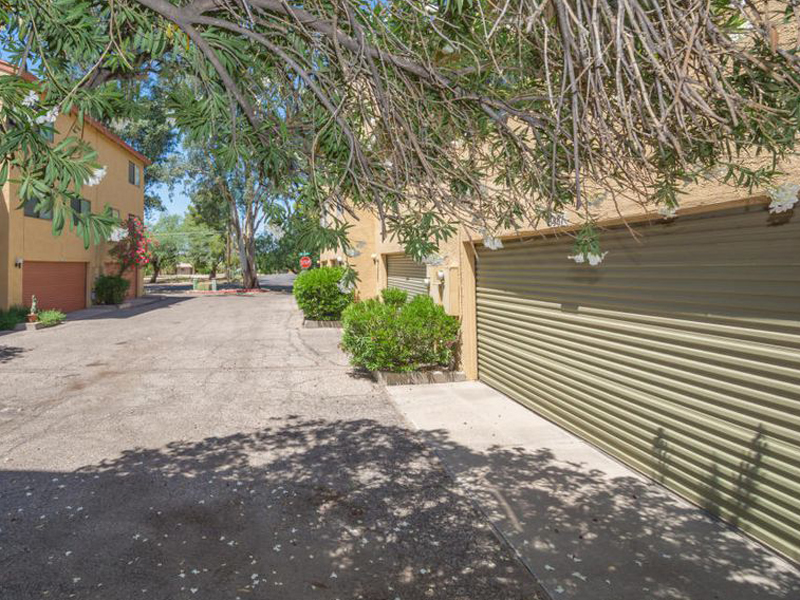Is Your Garage Door Stuck? Below's What to Do Initial
When your garage door won't open, begin with these important safety checks before attempting any type of repair services. First, make sure nobody is standing near the door and that lorries are clear of the opening. Seek noticeable signs of damage like damaged panels, bent tracks, or hanging cables. If you see a snapped springtime or severely damaged components, stop immediately and call a specialist—-- these repairs call for specific devices and proficiency to deal with securely.

Inspect These 6 Things Prior To Calling a Professional
Before thinking you require pricey repair work, go through this quick analysis checklist that fixes most garage door issues:
-
Power source: Validate the opener is connected in and the electrical outlet is functioning
-
Remote batteries: Replace dead batteries in your push-button control
-
Hand-operated lock: Inspect if somebody unintentionally engaged the hands-on lock
-
Blockages: Search for particles obstructing the door's course or sensing units
-
Emergency release: Make certain the red emergency situation cable hasn't been pulled
-
Circuit breaker: Verify the garage circuit hasn't stumbled
These easy checks solve approximately 70% of garage door problems without needing professional intervention.
10 Common Reasons Your Garage Door Will Not Open Up
Comprehending why your garage door opener isn't functioning assists you pick the right service. Right here are the most constant reasons house owners experience:
Dead remote batteries represent the most basic fix—-- when batteries die, the remote can not send out signals to the opener. Power failures or tripped breakers cut electricity to the motor. Damaged springs protect against the door from raising correctly and call for immediate specialist interest. Sensor imbalance reasons safety systems to block door procedure. Track blockages quit rollers from relocating smoothly. Motor overload triggers automated shutoffs when the opener identifies resistance. Limit switch issues confuse the opener concerning door placement. Cable television damage disrupts the training mechanism. Weather-related concerns affect door movement throughout severe temperatures. Component wear from age gradually minimizes system efficiency.
Trouble # 1: Dead Remote Batteries
When your wall button works but your remote doesn't, dead batteries are usually the offender. A lot of garage door remotes use either 3-volt lithium or 12-volt alkaline batteries. Remove the back cover of your remote and check the battery type. Change with fresh batteries and examine the remote. If it still does not work, you might need to reprogram it to your opener. Consult your opener's guidebook for certain reprogramming directions, as the procedure differs by producer.
Issue # 2: Power Supply Issues
Garage door power issues commonly stem from loose connections or tripped circuits. Inspect that the opener is securely connected into its outlet—-- vibration can loosen up links in time. Evaluate the outlet with another gadget to verify it's functioning. Analyze your home's breaker box for tripped circuits, particularly if you've experienced tornados or power changes. GFCI outlets may have tripped and require resetting. If the opener has power however will not react, the problem likely lies elsewhere in the system.
Problem # 3: Broken or Damaged Springs
Broken garage door springtimes are among the most dangerous parts to take care of. If you hear a loud bang from your garage or notice the door feels exceptionally hefty when trying to raise manually, a springtime has actually most likely snapped. Torsion springs run flat above the door, while expansion springtimes rest on either side. Never ever try spring fixings on your own—-- these components save incredible stress that can cause major injury or death. Professional substitute usually sets you back $150-$300 but ensures your security.
Trouble # 4: Blocked Safety And Security Sensors
Modern garage doors feature safety sensing units that protect against closure when objects are discovered. These sensing units can stop the door from opening up if they're filthy, misaligned, or obstructed by debris. Tidy sensor lenses with a soft cloth and guarantee absolutely nothing blocks the unnoticeable beam between them. Examine that sensing units are effectively straightened—-- many have indication lights that reveal link status. Sensing unit problems typically solve with easy cleansing and modification.
Problem # 5: Track Obstructions or Damages
Garage door tracks overview rollers as the door goes up and down. Dust, particles, old grease, or tiny items can jam the system. Inspect tracks aesthetically and eliminate any kind of obstructions with a brush or cloth. Search for damages, bends, or warping that could restrain smooth procedure. Minor track adjustments are feasible for handy home owners, yet significant damages calls for professional repair service to stop additional problems or safety and security risks.
Problem # 6: Garage Door Opener Motor Issues
When the garage door motor runs yet the door does not relocate, a number of issues could be responsible. The electric motor may be overwhelmed and turning off as a precaution. Gear wear, particularly in older systems, can avoid appropriate operation. Chain or belt drive troubles impact power transmission. If you listen to unusual grinding, clicking, or humming audios, stop making use of the opener promptly. Electric motor repair work frequently set you back greater than substitute, specifically for systems over ten years old.
Detailed DIY Troubleshooting Overview
Follow this systematic technique to garage door fixing while prioritizing safety and security throughout the procedure:
Action 1: Check the wall surface switch initially. If it functions but the remote doesn't, concentrate on remote problems. If neither works, inspect power supply.
Action 2: Take a look at the manual launch cord. If it's been drawn, the opener is disengaged from the door. Press the trolley back to reconnect.
Action 3: Manually examine the door by disengaging the opener and attempting to raise the door by hand. It must relocate smoothly and stay in location when half-open.
Step 4: Evaluate noticeable components for damage, paying unique attention to springs, cords, and tracks.
Step 5: Inspect all safety and security functions consisting of sensing units, limit switches, and auto-reverse features.
Action 6: Test various controls (remote, wall surface button, keypad) to isolate the trouble source.
Always use safety glasses and job handwear covers when doing inspections, and never ever effort fixings on springs or high-tension components.
When to Call a Specialist vs. do it yourself Solutions

Understanding when to call a garage door specialist versus trying DIY repairs shields both your safety and security and your wallet. Handle these problems yourself: dead remote batteries, power supply issues, small track cleansing, sensing unit cleaning and alignment, and standard lubrication.
Never ever attempt these repair services yourself: springtime substitute or modification, cable television repairs, major track realignment, electrical wiring issues, opener motor replacement, or any fixing including high-tension components. Expert technicians have specialized tools, training, and insurance policy to manage unsafe repair services securely.
Think about repair work expenses versus replacement costs, specifically for doors over 15 years old. Modern garage doors provide far better security attributes, energy effectiveness, and reliability than older models.
Emergency Situation Garage Door Solutions
When you're stuck with a garage door that won't open up and require immediate access, comply with these emergency situation procedures:
Manual Procedure: Pull the red emergency situation launch cord to disengage the opener. This allows hands-on procedure however needs correct strategy to stay clear of injury. Raise the door slowly and equally, making use of leg muscular tissues instead of your back. The majority of household doors weigh 100-150 pounds, making them workable for the majority of adults.
Momentary Fixes: If the door opens up manually but will not stay up, prop it open with sawhorses or clamps—-- never use your body or lorries as assistances. For doors that won't shut entirely, make certain the opening is safeguarded if you must leave.
Emergency situation Service: Many garage door business offer 24/7 emergency situation solution for situations entailing security problems, caught cars, or total system failures. While more costly than normal solution telephone calls, emergency repair services provide prompt services when required most.
Security Caution: What NOT to Do
Garage door safety needs understanding hazardous repairs that should never ever be tried by homeowners:
Never try to fix springs—-- they store enough energy to trigger fatal injuries when they snap or are poorly dealt with. Don't compel a stuck door—-- this can harm the opener, tracks, or door panels, developing more costly problems. Prevent bypassing safety attributes—-- sensing units and auto-reverse systems avoid major injuries and property damage.
Don't overlook weird sounds—-- grinding, scuffing, or banging noises suggest problems that worsen gradually. Never ever make use of the door if cable televisions are torn or damaged—-- the door could drop all of a sudden. Don't attempt electrical fixings unless you're a certified electrical expert—-- garage door openers make use of both 120V house existing and low-voltage control circuits.

Preventive Maintenance to Stay Clear Of Future Issues
Routine garage door upkeep avoids most typical issues and extends system life-span considerably:
Monthly Tasks: Visual inspection of all parts, examining auto-reverse security features, examining and tightening equipment, and cleansing tracks and sensors.
Quarterly Jobs: Lubing all relocating parts with appropriate garage door lubricating substance, screening handbook operation, and checking climate securing.
Annual Jobs: Professional examination and tune-up, springtime change if needed, and opener maintenance consisting of belt or chain change.
Seasonal Tasks: Getting ready for weather extremes, examining insulation, and readjusting opener settings for temperature level adjustments.
Regular upkeep expenses much less than emergency situation repair work and ensures dependable operation year-round.
Garage Door Won't Open FAQs
Why will not my garage door open with the remote but deals with the wall surface switch?
This typically suggests dead remote batteries, signal interference, or the requirement to reprogram the remote. Check batteries first, after that consult your opener guidebook for reprogramming directions.
Can I manually open my garage door if the power is out?
Yes, pull the red emergency release cable to disengage the opener, after that raise the door manually. Be prepared for the door's complete weight and lift with appropriate strategy to stay clear of injury.
Exactly how do I recognize if my garage door springtime is broken?
Signs consist of a loud bang from the garage, the door sensation exceptionally heavy when raising by hand, noticeable voids in the spring coils, or the door only opening up a few inches before stopping.
Is it risk-free to utilize my garage door if it will not open right?
No, partial procedure suggests mechanical problems that could get worse all of a sudden. Quit utilizing the door and have it examined by a specialist to avoid more damage or injury.
What should I do if my garage door opens yet will not shut?
Check safety and security sensing units for obstructions or imbalance, examine the tracks for debris, and examine the auto-reverse feature. If these don't address the trouble, consult a specialist.
Just how much does it cost to repair a garage door that will not open up?
Expenses vary widely depending on the issue: battery substitute ($5-$10), expert medical diagnosis ($50-$100), spring substitute ($150-$300), or opener substitute ($200-$500).
Can weather influence my garage door's capability to open up?
Yes, severe cold can enlarge lubes and influence metal components, while warmth can trigger growth problems. A lot of troubles deal with as temperatures stabilize, but persistent problems might need expert attention.
Why does my garage door open up a couple of inches then quit?
This usually shows damaged springs, limitation switch issues, or track obstructions. The opener's security functions stop operation when resistance is detected, preventing damages to the motor or door.
Get Expert Help for Complex Concerns
When do it yourself troubleshooting does not solve your garage door troubles, professional technicians supply the experience and tools needed for risk-free, lasting fixings. Qualified professionals identify concerns accurately, use manufacturer-approved components, and give guarantees on their work.
Expert services include: thorough system inspections, springtime and cable television substitute, opener repair service and substitute, track positioning and substitute, electrical troubleshooting, and emergency solution phone calls.
What to expect: in advance rates, certified and insured specialists, same-day solution for many repairs, and follow-up maintenance referrals.
Most garage door companies supply complimentary price quotes for significant fixings and can supply prompt services for urgent problems affecting home security or car gain access to.
Obtaining Your Garage Door Working Again
A garage door that will not open up does not need to ruin your day or break your budget plan. Beginning with straightforward troubleshooting actions like examining power, replacing batteries, and examining for noticeable obstructions. Lots of issues have fast do it yourself solutions that bring how to align garage door sensors correctly back regular procedure within minutes.
Nonetheless, recognize when expert assistance is necessary—-- particularly for spring-related issues, electric troubles, or facility mechanical failures. Trying harmful repair services yourself runs the risk of significant injury and frequently produces much more costly problems.
Regular upkeep protects against most garage door concerns and makes sure reliable operation for several years to find. When troubles do take place, address them immediately to avoid even more pricey repairs and keep your home's safety and security and benefit. Whether you need an easy battery substitute or total system overhaul, services exist to get your garage door working smoothly once more.